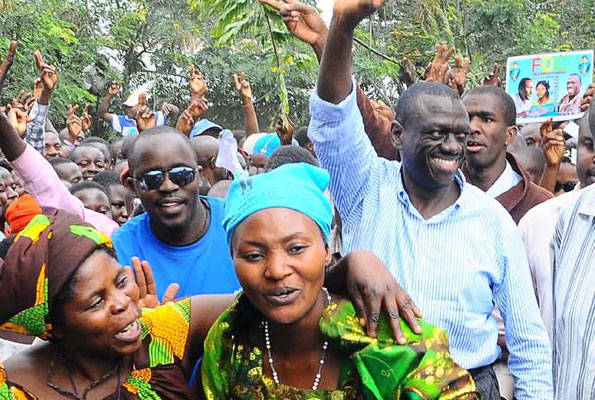Members of Parliament have expressed discontent about government’s failure to declare its stand on the country’s membership of the International Criminal Court (ICC), demanding a formal explanation about why it is shying away from the questions raised by lawmakers about the same matter.
Hon Winnie Kiiza, the opposition leader in parliament who did not mince her words interrupting the Prime Minister’s question time on Wednesday and attacked the government for not respecting and responding to lawmakers’ queries every time they are raised in parliament by always giving what she termed as “casual responses.”
“The last time we had the Prime Minister’s question time, the issue of whether Uganda will pull out of the ICC and what will happen to case involving Uganda before that court was raised. But no minister, as promised has given us a response on the issue” she said.
While responding to the Leader of Opposition in parliament, Dr Ruhakana Rugunda the Prime Minister who doubles as Leader of Government business in Parliament referred the matter to the Attorney General whom he said has the authority to speak about the matter.
“Only the Attorney General can give an authoritative response to this question and is currently out of the country,” Dr Rugunda responded.
The Hague based ICC has of the recent past come under public criticism for aiming at trying only Africans and ignoring the Western leaders who according to them have done more crimes against humanity than them.
According to the Rome statute to which Uganda is still a member, the ICC was established to prosecute international crimes of genocide, crimes against humanity and war crimes.
In addition to the above, the ICC is extended to complement the existing national judicial systems and it may therefore only exercise its jurisdiction when certain conditions are met, such as when national courts are unwilling or unable to prosecute criminals or when the United Nations Security Council or individual states refer investigations to the court.
Despite plans to withdraw from the world court, Uganda is among the African countries which have referred to ICC for investigations of possible war crimes against humanity allegedly committed on its territory.
Uganda has in the past referred Joseph Kony and his Lord’s Resistance Army (LRA) to the ICC for crimes against humanity in 2003. His deputy in command, Dominic Ongwen has since been taken into custody.
President Museveni has on several occasions attacked the ICC for loosing track of its original principles and objectives for why it was set up. He accuses it of being a tool of neocolonialism failing to try Western leaders but rather zeroing down to only African Leaders.
While delivering his speech on Uganda’s independence day on October 9th, 2012, Museveni accused the ICC for being biased and described it as “a tool of neocolonial hegemony”.
His call was later reechoed by his fellow heads of state when they ganged against the court’s decision to try Kenya’s president, Uhuru Kenyatta and his deputy William Ruto over the 2007 postelection violence in their country which were later dropped.
In the neighboring countries of Burundi and South Africa, the former’s parliament has already passed a resolution unanimously agreeing to withdraw from the courts and the latter is soon to follow suit.
According to the customary international law, sitting heads of state are guaranteed immunity and should not be tried by any court both international and/or a national court, which The African union has argued that it should be implemented and respected.
Cases of trying heads of state and mainly African leaders have become rampant with the latest being that of Laurent Gbagbo, the former president of Ivory coast and his wife, Simone Gbagbo who are accused of fueling the 2010-2011 postelection violence in their country. The same applies to Jean Pierre Bemba, the former Vice President of Democratic Republic of Congo.











